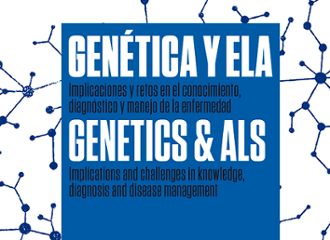Research projects
Start of main content
Mechanisms for sustaining mitochondrial genome integrity and function during hematopoiesis.
22st national competition for scientific and technical research
Rare diseases
Senior Researcher : Ana Victoria Lechuga Vieco
Research Centre or Institution : Fundació Clínic per a la Recerca Biomèdica. Hospital Clínic. Barcelona
Abstract
Hematopoietic stem cells (HSCs) primarily remain in a quiescent state, occasionally dividing and self-renewing to maintain the stem cell reservoir, ensuring the continuous production of mature blood cells. Disruptions in mitochondrial genome stability and function can destabilize the balance between self-renewal and differentiation, affecting the frequency of terminally differentiated cells and tissue homeostasis due to the accumulation of senescent immune cells. These alterations may explain the variability in symptoms observed among patients with mitochondrial diseases. Primary mitochondrial DNA (mtDNA) mutations cause maternally inherited diseases, while secondary mutations arise from defects in nuclear-encoded proteins responsible for mtDNA maintenance. Loss of mitochondrial capacity in murine models and patients with mitochondrial diseases affects organ function, although the underlying molecular mechanisms remain incompletely defined.
Our study aims to identify biomarkers and assess the spectrum of mtDNA mutations in hematopoietic cells, with the long-term goal of improving the diagnosis and treatment of mitochondrial diseases. Identifying new regulatory mechanisms in hematopoiesis under cellular stress conditions and developing therapies to enhance mitochondrial function in murine and human HSCs will provide essential insights into individual variability, disease susceptibility, and treatment responses. We will investigate the effects of mitochondrial genome instability on HSCs and mature immune cells using preclinical models of mitochondrial diseases (PolgAD275A, a mutation associated with impaired mitochondrial genome proofreading) and blood samples from patients with primary and secondary mtDNA mutations (m.3243A>G and POLG, respectively). Understanding lymphopenia in PolgAD275A mice is key to uncovering the mechanisms of these diseases and developing therapeutic strategies for immune deficiencies linked to mutations that compromise mtDNA integrity. We will also explore whether pharmacological and genetic interventions in HSCs can restore immune homeostasis and improve cardiopulmonary function in preclinical models. Currently, there are no effective treatments for mitochondrial diseases, highlighting the importance of this study in opening new avenues for therapeutic possibilities. These include addressing nonimmune symptoms associated with mitochondrial conditions, providing opportunities for improved management and outcomes for affected individuals.
-
 Activities related
Activities related
-
 Projects related
Projects related
-
 News related
News related
-
 Publications related
Publications related
 Activities related
Activities related
-
26
Jun
2024
Conferencias La aventura de la ciencia Madrid, Miércoles 26 de junio de 2024, 19:00 horas
-
13
Feb
2025
17th edition. Cycle of conferences and debates in science Digital Twins: Technological Advances and Application Opportunities Madrid, Thursday, 13 February 2025, 17:30 hours
-
18
Feb
2025
Session New Therapies for the Inflammation Treatment Madrid, Feb 18th, 2025, Tuesday. 4PM
 Projects related
Projects related
- Development and Application of saRNAs for the Treatment of Rare Monogenic Diseases 2024 Senior Researcher : María Luisa Cayuela Fuentes
- CHANNELOSOME RESCUING PEPTIDES IN THE TREATMENT OF ARRHYTHMIAS IN INHERITABLE HEART DISEASES 2024 Senior Researcher : José Jalife Research Centre or Institution : Centro Nacional de Investigaciones Cardiovasculares (CNIC). Madrid
- Biocompatible nanoformulations: targeted delivery of bioactive compounds for the treatment of Inborn Errors of Metabolism 2024 Senior Researcher : Belén Pérez Research Centre or Institution : Departamento de Bioquímica y Biología Molecular. Facultad de Ciencias. Universidad Autónoma de Madrid
 News related
News related
 Publications related
Publications related


End of main content



